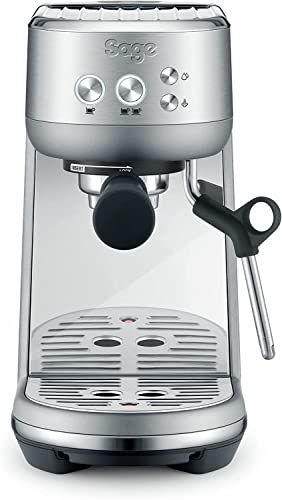Benefits of an Espresso Machine
In an espresso machine hot water is forced through the finely grounded coffee beans. This creates a smooth, rich drink referred to as espresso.
The first espresso machines were powered by steam. professional espresso machine utilize a single boiler to brew multiple drinks at once. When the water gets to the "grouphead," where a portafilter is firmly seated, it's almost boiling.
Health Benefits
The caffeine in espresso may boost the mood of a person. This is especially beneficial for those who suffer from depression, as it can boost their spirits and give them the boost they need to get through the day. It can also aid in reducing fatigue, which is a common symptom associated with depression. Coffee has also been proven to improve short-term memory, as well as the ability to solve problems. These benefits are also beneficial to office workers who need to recall details about their projects and deadlines.
If people have an espresso machine in their home and can make a delicious cup of cappuccino or coffee whenever they want. It can save them money and time since they don't have to visit a cafe. It's also more convenient serving delicious drinks at home when entertaining family or friends.
When choosing an espresso machine It is important to think about how easy it is to operate and whether there are any additional features, such as milk frothers or a built-in coffee grinder. Make sure to check how many drinks could be prepared at the same time and whether the machine comes with a steam wand to make lattes.
Energy Boost
An espresso machine at home is convenient when guests visit and you want to prepare them a delicious cup of espresso. You can also save money by not having to go to a cafe. It is best to get an espresso machine with a manual mechanism that allows you to adjust the amount of water and coffee used, so you can manage the intensity of your espresso and the amount of foam (crema) is produced.
There is an espresso machine with a manual mechanism at most appliance stores. These machines come with a portafilter which you fill with ground coffee, and then compress using a technique known as "tamping." You'll need to pump a lever to create the necessary pressure to extract the flavor from the ground beans. Some models include a steam wand that can be used to heat and froth milk making drinks like cappuccinos and lattes.
A newer development in espresso machines is the super-automatic that's similar to a regular automatic but offers greater consistency. These machines are programmed to make an exact size espresso. They are much easier to use and have scored top marks in Lab testing. They can grind beans, measure and tamp them at the touch of one button. Some models include a built in coffee grinder and can also make espresso, brewed or brewed coffee. However they cost more than semi-automatic and manual machines.
Anti-Inflammatory
Although espresso and coffee can provide a healthy energy boost however, they should be consumed in moderate amounts to avoid digestive problems, anxiety and high caffeine levels. It's also important to drink a high-quality cup of coffee to avoid the adulterants that are used in low-quality espressos, which could be harmful to your health.
Research has shown that the polyphenols in coffee, including CGA, have anti-inflammatory properties. They have bacteriostatic and bactericidal effects on various types of harmful microorganisms, which can develop in various areas of the body, ranging from oral bacteria that cause caries to harmful intestinal bacteria.
The two diterpenes to blame for coffee's adverse effects, cafestol as well as kawheol, have also been discovered to have anti-inflammatory properties as well as antioxidant and anti-fibrotic properties. According to a study that was published in the International Journal of Molecular Sciences these bioactive compounds could be responsible for the positive effects of coffee on human health. CGA has also been linked to lower rates of illness and longer life expectancy in other studies.
Diabetes: Lower Risk
Many people are looking for ways to lower the risk of developing diabetes in a world where diabetes is becoming more prevalent. Coffee is, in fact, one of the most effective methods to do so. Coffee's caffeine increases metabolism and reduces blood sugar levels following the consumption of a meal. Through lowering cholesterol levels it also decreases the risk of developing type 2 diabetics. It is important to note that the amount of caffeine you take in daily should be controlled. If you're sensitive, it is best that you limit your intake of caffeine to a cup daily.
A new study from Sweden confirms previous studies that link the consumption of coffee to a decreased risk of developing type 2 diabetes. This study differs from others in that it separates filtered and boiled coffee in order to better understand how the different preparation methods impact the health effects of coffee.

The study employed a method called metabolomics in addition to classic dietary questionnaires. This technique is more accurate than self-reported intakes made based on questionnaires because it measures the amount and quality of certain compounds within the body. Researchers also controlled for variables like sex, smoking status and the method of preparation for coffee to prevent confounding factor biasing results.
While the results were evident, the scientists are not certain of the precise mechanism behind the results. They believe the positive effects of coffee may be due to diterpenes that hinder glucose absorption in the liver. They are hoping to further explore the differences in a forthcoming study.
